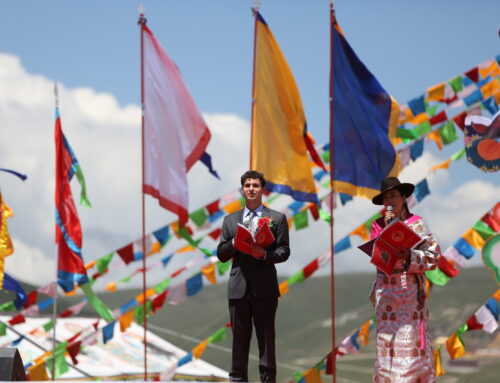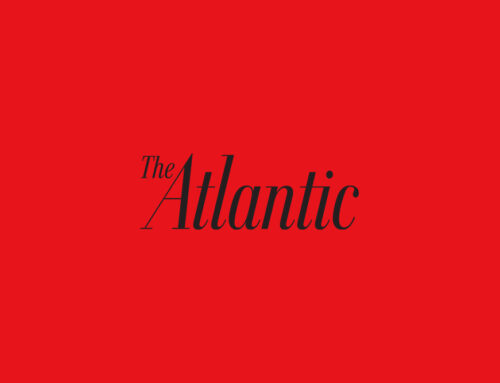LESSONS FROM THE NEAR FUTURE
Will People Want to Travel in a Post-Quarantine World?
The road ahead towards re-opening after COVID-19 quarantine doesn’t have to be unknown. This series explores what lies ahead beyond quarantine, drawing from the experiences of people and businesses 4-12 weeks ahead of the world. My hope is that understanding people’s experiences in China can help us navigate the challenging weeks and months ahead.
Where does the heart wander under quarantine? Where will it guide our feet once the doors re-open to the world around us?
In Dispatch #1, I wrote about how, in China, food and travel rose to the surface of the collective psyche as the top stuff of post-quarantine fantasies. We wrote before about “revenge shopping,” and it seems to be playing out, especially in the luxury space. One Hermes flagship store in Guangzhou sold $2.7m worth of stuff in one day after re-opening.
But travel was an unwitting accomplice to the unprecedented global spread of Covid-19.
Just how hard has the industry been hit? Friends at the World Travel & Tourism Council estimate an almost unthinkable 100 million lost jobs and US$2.7 trillion of GDP globally. US Airlines are losing a jaw-dropping $400 million a day. Yes, Carnival Cruise just announced that they had 200% of booking requests for August 2020 as they did in 2019…but prices dropped to as low as $28 a night. I’d be saving loads on rent by moving onto this ship.
China just completed yet another experiment in post-quarantine life: the first massive travel holiday in a post-quarantine world ended last week.
May 1-5 – Labor Day, or “Golden Week” as it’s called in the travel world, is a national holiday in China. More than a month beyond officially leaving shelter-at-home, how did the Chinese people respond?
#1 First, here’s what you need to know about China’s travel industry, pre-covid.
It’s the biggest in the world…by a lot. China surpassed the US in 2013 as the largest outbound tourism spender in the world. (Source: World Bank)

It’s growing ~10x faster than everywhere else. In the last decade, outbound tourism spend in China has grown by 535%, compared to the US (77%), Germany (18%), the UK (19%), and France (30%).

Two-thirds of Chinese passport holders are millennials. This is where China derails from the typical travel trends. Most passport holders are under the age of 40 in China.

It’s hardly begun, with only ~9% of the population holding a passport, compared with ~40% passport penetration in the US, and ~90%+ in the UK and Germany.

Remember, 20% passport penetration in China, which analysts expect to hit by 2025, means 280 million international Chinese travelers.
What does this all mean?
China is redefining global travel, and millennials are defining the new Chinese traveler.
It’s why Vegas casinos advertise Alipay, and many advertisements when you get off the plane in the Sydney airport are in Mandarin.
#2 Travel trends from the first massive global travel holiday post-quarantine, China’s Golden Week.
While the rest of the world is preparing to re-open its respective economies, China just did the world’s first trial run in post-covid mass travel.
To answer the original question: Will people want to travel post-quarantine? The answer is “yes, but…”. Here is what happened over China’s Golden Week:
- By the numbers: not abysmal, but far from great. The State Ministry of Culture, Sports and Tourism released data showing that from May 1 to May 5, a total of 115 million domestic tourists spent US$6.7 Billion.Those numbers look impressive, but China is the world of big numbers. The number of domestic tourists was down 41% from last year, and the revenue plummeted 60% from last year.60% down from last year is actually not all bad considering international travel was out of the question, and every hotel, destination, and tour site were offering bargains. It’s not rocket science – reduced options at reduced prices means reduced business.Will US and global numbers look the same in time? It could very well be worse, if we don’t get our testing and screening protocols up to speed. Though Americans seem to be less concerned than Chinese, suggesting less aversion from travelers. (I hope this isn’t the case, for safety’s sake.)
- Demographic shift: Young Millennials and Gen Z make up more than half of bookings. We may have found the missing revenue – many older travelers didn’t leave home, or they didn’t book overnight travel.These generational travel numbers are stunning. According to data from China’s titan in the Online Travel Agency space, Ctrip, Post-90s (born 1990-1999) and Post-00s (born 2000-2009) ordered more than half of the total independent/group travel products, far more than post-70s.Anecdotally, we spoke with hotel owners throughout Shanghai and Sanya who noted their hotel demographics shifted to a younger crowd.There are at least three factors at play here:1: The older community is still skittish about exposure, and rightfully so.2: A lack of group tours, which catered to older crowds, means fewer older travelers. 3: China’s older generations have always been intense savers, and the economic impact of covid has kept them sheltering at home.
- Travelers are still nervous, and safety is a selling pointBefore May 1st, Ctrip introduced the group travel-oriented “league of safe tours” and its service standards, featuring more than 6,000 products labeled 安心, or safe and peaceful. From the data on group travel orders, 70% of travelers chose the product with the label.Domestic destinations with bad virus track records were avoided. Beijing was one such case, as the capital, normally a major destination for domestic tourism, was ignored by many travelers. Shanghai, Dalian (seaside city accessible by car and train from Beijing), and Sanya were all well occupied within the Marriott hotels group.
- Only domestic travel, and only domestic travelers. International travel is all but banned in China, requiring a two-week quarantine on the back end of the trip.International travelers are fully banned from China—you can’t get into China now on the majority of foreign visas, from tourist to work. This also means also that everyone within China is integrated into China’s Health App ecosystem of contact tracing.For Chinese travelers, this means that all their fellow travelers exist within the “safety ecosystem” of temperature testing and contact tracing. Will foreign travelers have to be screened as rigorously as Chinese travelers going forward?
- Equating “nicer” with “safer”: Travelers are upgrading to higher end hotels. 4-star and 5-star hotels booked accounted for 55% of all bookings through Ctrip. For the pre-sale, 5-star hotel sales accounted for 50%. Yes, deals abounded with an average 25% discount, but the shift upwards was palpable.
- Group tours are down; the FIT (free independent traveler) is up. Self-explanatory. Now is not the time for traveling on buses and eating community meals with strangers.
- Beach and safe city destinations were packed. The most popular destinations were Sanya, Chengdu, and Shanghai. I have young Chinese friends who left Beijing to go to Shanghai to go clubbing. Why? Shanghai wasn’t hit nearly as hard as Beijing, and so the club scene has rekindled faster (with safety precautions at the doors).On an industry call, executives from several major hotel brands said their Sanya locations were all packed. That’s good news.Like Beijingers did, it’s fair to expect New Yorkers to want to get out of New York to more remote, safer surroundings.
- The spa is open, and people are ready to be pampered. We spoke with several hotel GMs whose spa treatments fully sold out. Massage, nails, physiotherapy – after months cramped up at home, people want to be pampered.
- Crowds kept to 1/3 of capacity at major tourist destinations. Chinese tourist destinations used to be defined by their large crowds. For major tourist destinations like “Yellow Mountain” in Anhui province, you have to book a ticket far in advance, and they’re limiting tourists to 1/3 capacity.So yes, revenue numbers are low, but the industry still faces covid-centric restrictions.

Rural Guizhou during Golden Week, 2015. Also, a visual expression of “what not to do while traveling in 2020.”
#3 What new protocols have Marriott and Bvlgari Hotels implemented in a post-covid world?
I spoke with Antonio Saponara, General Manager of Bvlgari Beijing, the finest hotel in the nation’s capital. Years ago, when I first sat down and spoke with Antonio, he explained how most of the Bvlgari’s deluxe suites were booked by foreigners, and the discounted online bookings were made by Chinese. Now, he says, it’s inverted. It’s shifted in a matter of years.
Golden Week was the first of many post-covid tests. Across China, Marriott was at roughly 70% occupancy rate, according to Antonio.
Last note I wrote how, “After months of being told ‘don’t trust thy neighbors,’ the task of the gym, restaurant, hotel, etc. is to convince customers, “you can at least trust these people here with you.”
Below is some of what the Bvlgari Hotel and Marriott have put in place to create that sealed, safe ecosystem within their hotels:
- All guests get temperature checked at the door and present their “Health Code” app for entry. Irregular temperatures or Health Code results means you cannot enter.
- Guest temperatures are also taken an extra once per day. Trained hotel employees will knock on doors to administer the contact-less, quick test.
- Housekeeping staff sanitize their hands once every twenty minutes.
- Marriott has identified 10 high frequency contact points in rooms for extra sanitation, like doorknobs, air conditioning controls, TV remotes and more. They take extra care to sanitize here.
- Masks, gloves, and PPE for all.
Final thoughts from Antonio: “The new normal is a lot more normal than what you expect. But this has been achieved because we were very disciplined with safety standards, which in fact are still in place. I’m speaking to you with a mask under my chin.”
Disclaimer: Since Young China Group’s founding, I’ve been lucky to work rather extensively in the travel space as the China advisor to Virtuoso and the co-chair of their Millennial Mindset Innovation Team. I’ve delivered speeches at the World Travel & Tourism Council’s annual summit (after President Obama!) and Relais & Chateaux’s annual congress, plus a number of Virtuoso events. Putting this together I was able to reach out to several industry players, including front-line Chinese travel agency leaders.






Leave A Comment